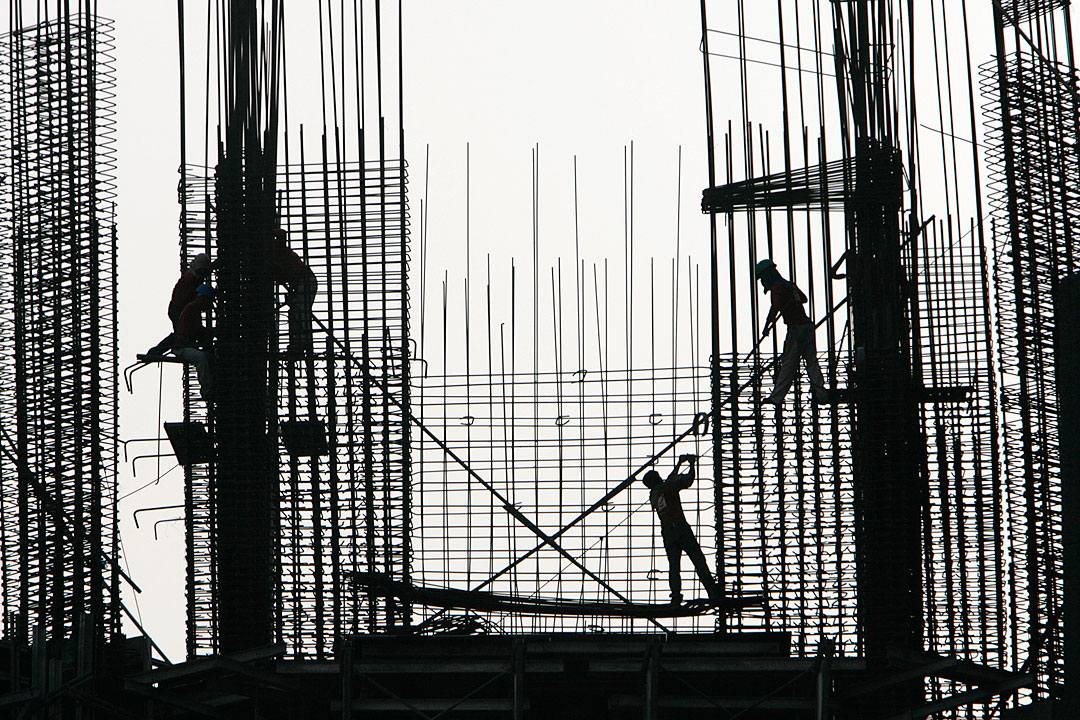Marcos urged to certify wage hike bill as urgent

SENATE President Juan Miguel F. Zubiri on Thursday asked Philippine President Ferdinand R. Marcos, Jr. to consider certifying as urgent the P100 minimum wage hike bill for private sector workers, saying it would help workers cope with spiraling prices.
“I also urgently appeal to our President to consider Senate Bill No. 2534, or the [proposed] P100 Daily Minimum Wage Increase Act, which will be a massive step toward giving our hardworking laborers the living wages that they deserve,” he said in a statement.
“Perhaps it can even be certified as urgent, given the continued spike in the prices of goods owing to inflation.”
The Senate passed the bill on final reading in February, amid warnings that a hike that is too high could fan inflation. It has been sent to the House of Representatives for its consideration.
There are also separate House bills that seek to increase minimum wages by P150 to P750, and another that mandates a P33,000-a-month entry wage for government workers.
“All we need is the House counterpart measure, and this will be immediately felt across the sector,” Mr. Zubiri said.
Under the Constitution, a president can only certify a bill as urgent if there is a public emergency or calamity that requires its immediate passage.
Mr. Marcos on Wednesday ordered regional wage boards to review minimum wage rates amid rising costs of living.
He said the boards should consider inflation and other economic challenges when reviewing wages.
“The rise of involuntary hunger is truly concerning and disheartening,” Senate Majority Leader Emmanuel Joel J. Villanueva said in a statement. “Two things that the government needs to address… are inflation and wages.”
Metro Manila’s daily minimum wage rose by P40 to P610 in June, much lower than the P570 increase sought by some labor groups.
The International Labour Organization has said the erosion of real wages and living standards by runaway inflation and housing costs globally is unlikely to be addressed or offset this year.
“It is essential to make timely adjustments to the minimum wage to safeguard the economic well-being of our labor force and promote social justice,” Senator Jose “Jinggoy” P. Estrada, who sponsored the Senate wage hike bill, said in a statement.
National Economic and Development Authority Secretary Arsenio M. Balisacan has warned that proposals to legislate a P150 wage hike could stoke inflation.
Inflation quickened for the second straight month to 3.7% in March from 3.4% a month earlier.
“Our inflation rates are continuing to trend upward, at a rate that the wage boards have not yet been able to keep up with,” Mr. Zubiri said. “This bill will give a boost to the labor sector at this time of great need, as our people work to survive inflation.”
Meanwhile, the House is carefully studying legislated wage increases to prevent business closures, Isabela Rep. Faustino A. Dy told a news briefing.
Congressmen want to balance the interests of workers and businesses and ensure any wage hikes are sustainable, he added.
“It’s something that really needs to be studied thoroughly,” Mr. Dy said. “It really needs a proper balance because we don’t want to sacrifice businessmen.”
“At the end of the day, we want employment, and we want businesses to create more jobs,” he added.
Party-list Rep. Jude A. Acidre said Congress should rationalize wages per industry instead of legislating wage increases, which he said companies might not be able to absorb.
“I’m proposing that we study the possibility of rationalizing wage levels on the basis of industry and not on the basis of the regions,” he said. — John Victor D. Ordoñez and KennethChristiane L. Basilio
